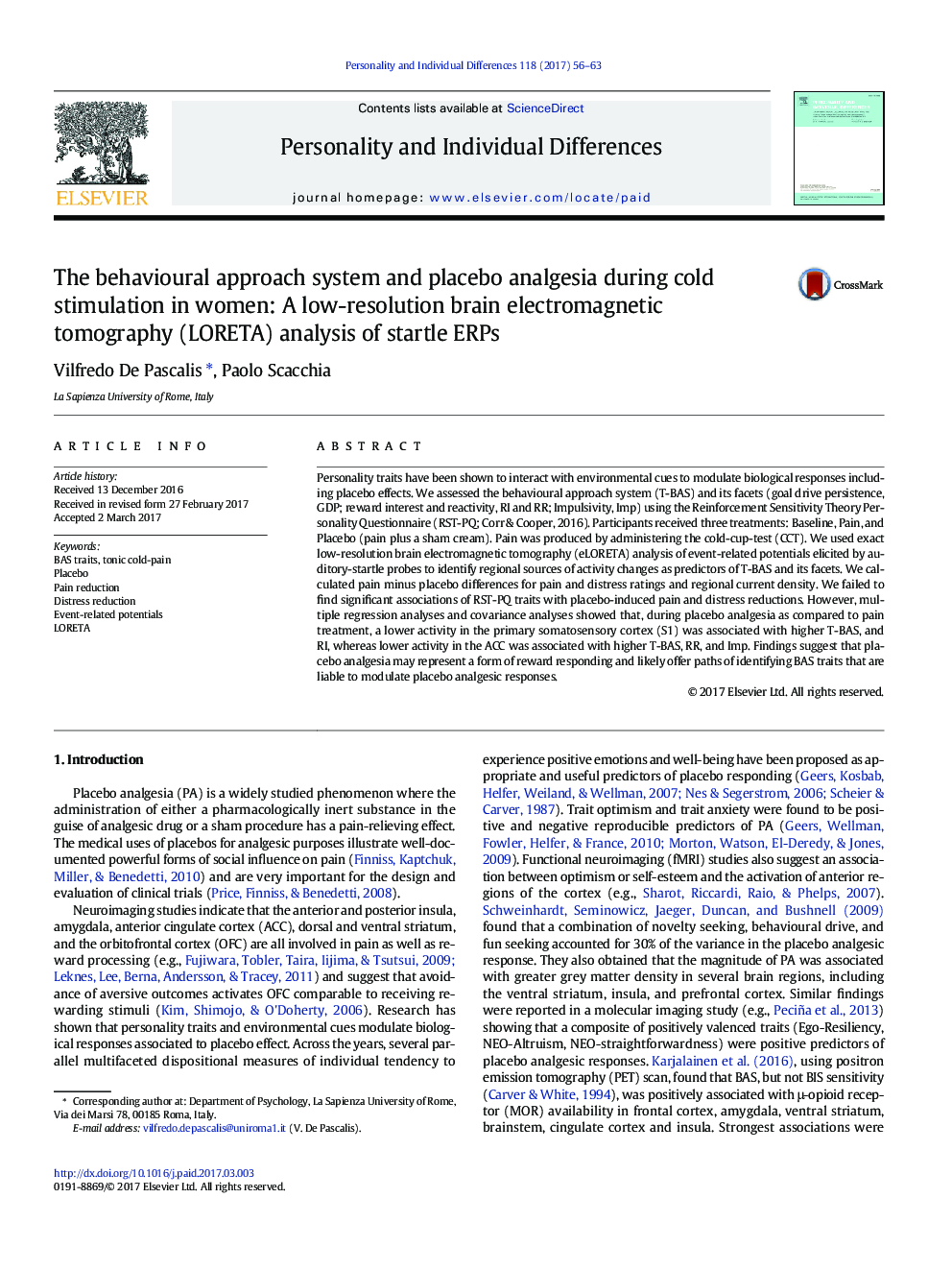| Article ID | Journal | Published Year | Pages | File Type |
|---|---|---|---|---|
| 5035569 | Personality and Individual Differences | 2017 | 8 Pages |
â¢eLORETA analysis of ERPs to auditory-startle during pain and placebo treatmentsâ¢Examined the association of BAS facets with placebo-analgesia cortical activityâ¢Lower activity within S1 was associated with higher T-BAS, and RI scores.â¢Lower activity in the ACC was associated with higher T-BAS, Imp, RR scores.â¢RI, RR, and Imp lost association with S1 and ACC activity, after removing BAS scores.
Personality traits have been shown to interact with environmental cues to modulate biological responses including placebo effects. We assessed the behavioural approach system (T-BAS) and its facets (goal drive persistence, GDP; reward interest and reactivity, RI and RR; Impulsivity, Imp) using the Reinforcement Sensitivity Theory Personality Questionnaire (RST-PQ; Corr & Cooper, 2016). Participants received three treatments: Baseline, Pain, and Placebo (pain plus a sham cream). Pain was produced by administering the cold-cup-test (CCT). We used exact low-resolution brain electromagnetic tomography (eLORETA) analysis of event-related potentials elicited by auditory-startle probes to identify regional sources of activity changes as predictors of T-BAS and its facets. We calculated pain minus placebo differences for pain and distress ratings and regional current density. We failed to find significant associations of RST-PQ traits with placebo-induced pain and distress reductions. However, multiple regression analyses and covariance analyses showed that, during placebo analgesia as compared to pain treatment, a lower activity in the primary somatosensory cortex (S1) was associated with higher T-BAS, and RI, whereas lower activity in the ACC was associated with higher T-BAS, RR, and Imp. Findings suggest that placebo analgesia may represent a form of reward responding and likely offer paths of identifying BAS traits that are liable to modulate placebo analgesic responses.
